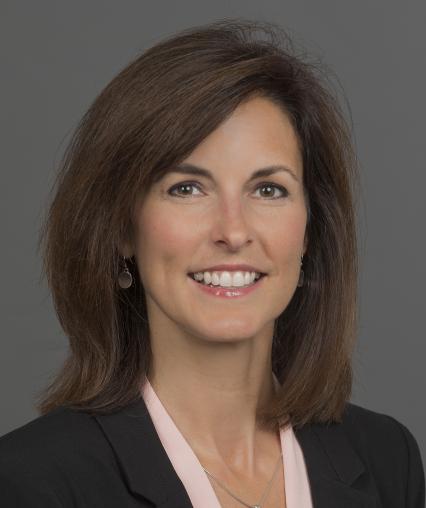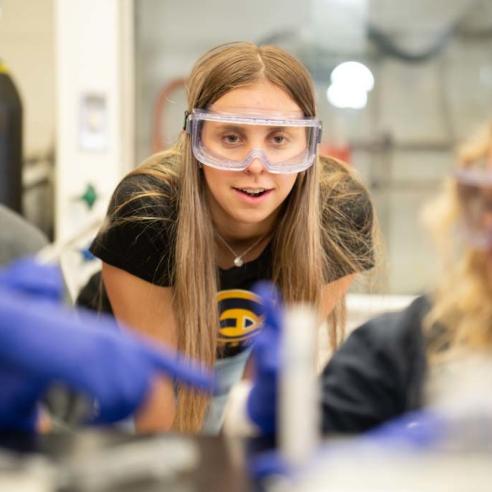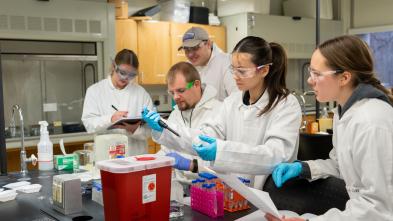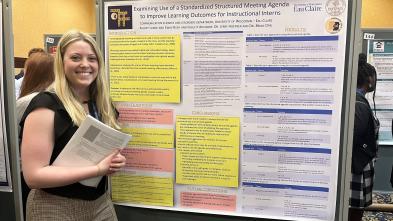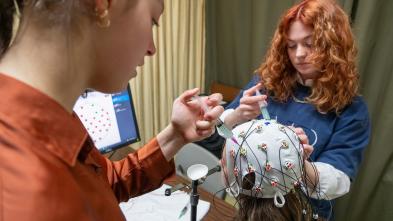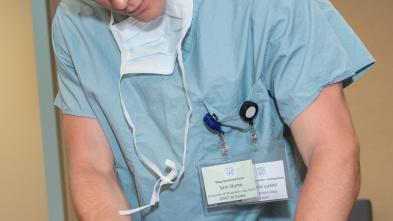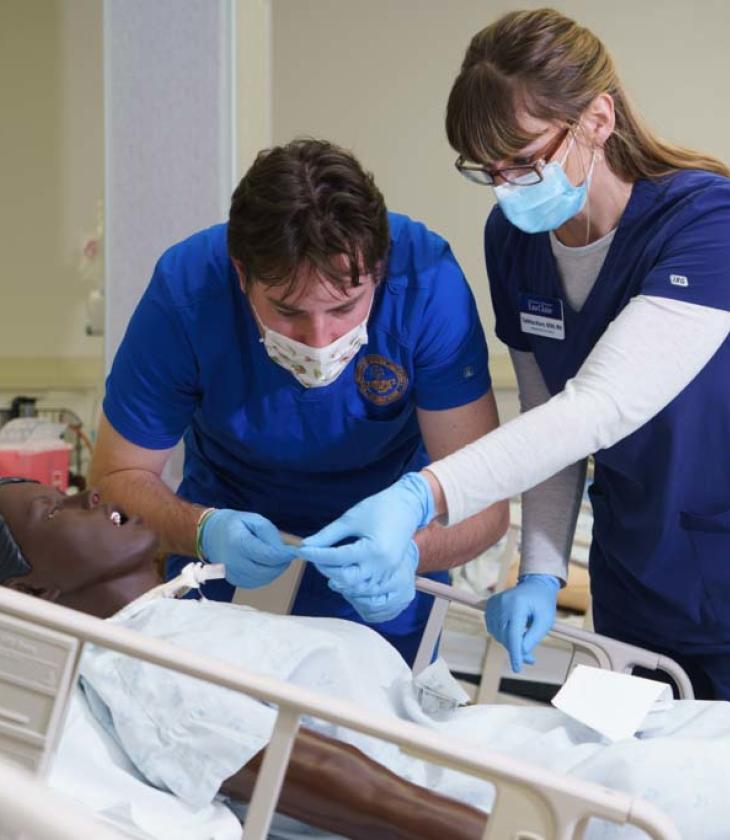
Nursing
Change the world one patient at a time with a nursing degree. Known for producing skilled, compassionate nurses and health professionals, our renowned program will prepare you for your career through clinical practica, interdisciplinary simulations and clinical cultural immersion experiences.
Caring for Our Community
Under faculty supervision, you will gain experience in a variety of organizations, including hospitals, short-term rehabilitation centers, home care, community agencies, ambulatory care facilities, schools and nursing homes. Through these experiences, you'll work with different specialties like pediatrics, obstetrics, mental health, community health and more, making you a well-rounded, experienced hire. A strong focus on emergency preparedness allows you to learn about the roles, rationale and terminology needed to prepare for situations that require you to respond quickly.
Additional opportunities to network and enhance your learning are made available through study abroad, collaborative student-faculty research, and internships. And thanks to the program's strong reputation and local connections, many students are able to find work as certified nursing assistants (CNAs) while still in school.
Students have the option to pursue their degree at one of two campus location: at the Eau Claire campus or at the Marshfield Site. Both campuses offer students an exceptional education and strong collaborations with leading healthcare organizations, including Mayo Clinic and Marshfield Clinic Health System.
Program Details
Accreditation Information
The baccalaureate degree program in nursing, master's degree program in nursing, and Doctor of Nursing Practice program at the University of Wisconsin-Eau Claire are accredited by the Commission on Collegiate Nursing Education (CCNE), 655 K Street NW, Suite 750, Washington, DC 20001, 202-887-6791, through December 31, 2031.
The programs are also approved by the Wisconsin State Board of Nursing.
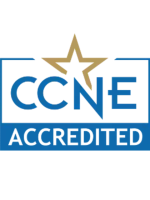
Licensure Information
The United States Department of Education requires institutions to disclose information for programs leading to professional certification or licensure about whether each program meets state educational requirements for initial licensure or certification.
The requirements of this program meet licensure in the following states: Colorado, Illinois, Iowa, Maryland, Minnesota, North Carolina, Wisconsin
The requirements of this program do not meet licensure in the following states: N/A
It has not been determined whether the requirements of this program meet licensure in the following states: Alabama, Alaska, Arizona, Arkansas, California, Connecticut, Delaware, Florida, Georgia, Hawaii, Idaho, Indiana, Kansas, Kentucky, Louisiana, Maine, Massachusetts, Michigan, Mississippi, Missouri, Montana, Nebraska, Nevada, New Hampshire, New Jersey, New Mexico, New York, North Dakota, Ohio, Oklahoma, Oregon, Pennsylvania, Rhode Island, South Carolina, South Dakota, Tennessee, Texas, Utah, Vermont, Virginia, Washington, West Virginia, Wyoming
State Board Examination
To be registered (licensed) to practice professional nursing, graduates of approved programs must pass an examination, administered under the authority of the State Board of Nursing. The computer-assisted test, known as the NCLEX, may be scheduled soon after graduation; examinations are given in all jurisdictions throughout the United States. Information on the exam is available from the National Council Licensure Examination for Registered Nurses (NCLEX). For Wisconsin professional nursing school NCLEX pass rates, visit the Department of Safety and Professional Services website.
Blugold Stories
Justthe
facts

Where can the nursing program lead me after graduation?
UW-Eau Claire nursing graduates find incredible opportunities in every corner of the United States. Equipped with knowledge, skills and experiences that set them apart from other candidates, graduates are ready to promote health, advocate for others and save lives. Because of the critical shortage of bachelor's-prepared nurses — especially in rural regions of Wisconsin — many graduates find jobs before or shortly after graduation.
Example Careers
- Medical-surgical registered nurse
- Labor and delivery nurse
- Clinical instructor
- Nurse case manager
- Clinical coordinator
Recent Graduates
Registered Nurse
Sacred Heart Hospital
Wisconsin
Director of Surgical Prep & Recovery Department
Mayo Clinic Health System
Wisconsin
Pediatric Hematology/Oncology Nurse
University of Wisconsin Health Systems
Wisconsin
Hospital Nursing Service Administrator
Mayo Clinic Health System
Minnesota
Registered Nurse
American Mobile Healthcare
California
Coordinator of Nursing Special Projects
Central Vermont Medical Center
Vermont
As a nursing major, you will start out with pre-nursing curriculum, taking courses in chemistry, biochemistry, human anatomy, statistics and more. Once admitted to the nursing program, you will begin your professional curriculum and training. Experiential classes, interdisciplinary learning and regular collaboration will provide you with the critical skills needed to lead within diverse and complex environments.
Here are a few courses in Nursing at UW-Eau Claire.
NRSG 340
Introduction to Professional Nursing
Introduction to the professional discipline of nursing, including nursing's historical evolution. Ethical decision-making and standards of care and practice are emphasized. Nursing, theory, research, and evidence-based practice are introduced.
NRSG 701
Nursing Research: Methods
Philosophies of science, research methodologies, and qualitative and quantitative data analyses are examined. Legal and ethical issues applicable to nursing research are discussed.
NRSG 477
Practicum: Nursing Leadership II
Focuses on achieving beginning competence in professional nursing practice. Integrates liberal education, leadership, scholarship, and professionalism with clinical reasoning, caseload management, organizational quality improvement, and reflective practice. Clinical laboratory in acute settings.
Get More Info
Sign up to receive additional information about our campus.
Meet the Faculty


